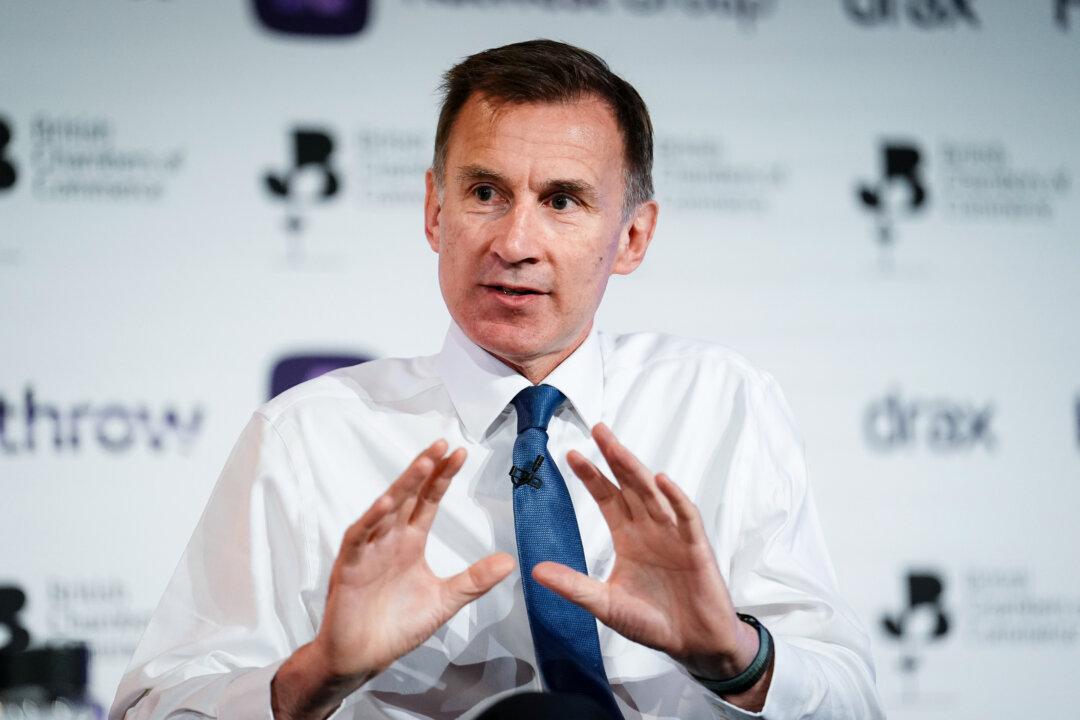There is little wiggle room for Chancellor Jeremy Hunt to announce tax cuts in the upcoming Spring Budget, amid record-breaking increases in tax revenues, an economic think tank has revealed.
Britain’s tax burden in 2023–2024 will be £66 billion higher than five years ago, and is set to increase as a share of national income up to £104 billion in 2028–2029.
The largest offenders when it comes to increasing taxes are threshold freezes in personal direct tax and the corporation tax increase implemented last year.
The government should “refrain from providing detail on tax cuts,” the IFS warned, until the government’s spending review reveals more detail on spending plans.
The growing population, driven by high net migration, will increase the size of economy but will also add pressure on public spending, the report said.
The latest population projections will lead to an average annual growth in real-terms spending per capita of just 0.2 percent a year. This compares to the 0.5 percent, previously estimated by the Office of Budget Responsibility (OBR).
In next week’s budget, the chancellor may be tempted to bank the “higher revenues that come from a larger population, while ignoring the additional pressures that a larger population will place on the NHS, local government and other services,” said Martin Miklos, research economist at the IFS, in a statement.
Mr. Hunt should resist the temptation to cut back provisional spending plans for the next Parliament further to create additional space for tax cuts, Mr. Miklos added.
The net debt of the public sector “will barely be on course to fall in five years’ time,” the IFS said. UK public finances have been affected by tax rises, including a rise in fuel duties, changes to business rates, and day-to-day spending on public services “that are unlikely to be realised,” the report added.
Room to Manoeuvre
If the chancellor is determined to cut taxes, he should consider slashing stamp duty on purchases of properties and shares, said the report. This would be a better option, said the IFS, than cutting rates of income tax, inheritance tax, or national insurance contributions, which were reduced in January.Mr. Hunt’s fiscal headroom is £13 billion, as estimated by the OBR in November 2023. This leaves the chancellor with £6 billion in reserve.
The UK’s public sector net debt was £2.68 trillion at the end of December 2023, or around 97.7 percent of GDP. It remained at levels last seen in the early 1960s.







